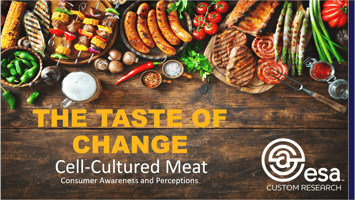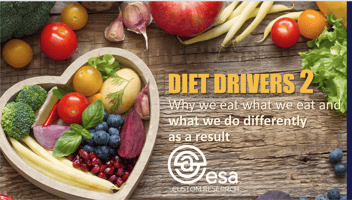Both the FDA and USDA recently awarded regulatory approvals to Upside Foods and to GoodMeat...
Our Ocean, Our Future
By Samantha de Souza
It is easy to think about the ocean as being something that is completely separate from us. We live our lives, and the ocean just does what oceans do. In reality the ocean is interwoven with humankind; we need its help just as much as it needs our help. As a young adult who lives in the Midwest, I must admit, the ocean didn’t used to be something that I thought about very often. It was far away, and the closest thing I see to the ocean on a daily basis is the pond in my neighborhood. Comparing the ocean to a pond is like comparing a mammoth to a mosquito. When we don’t think about the ocean very often, we miss all of the amazing things that it is trying to offer us, and we also miss its constant cry for help.
Ocean Potential
There are an estimated one million species of animals in the ocean -- not exactly a number that I can count to, how about you? That is one million species of animals who are living in an ocean. An ocean that people continue to pollute and plunder. Pollution, overfishing and mining are just a few of the looming threats that the oceans face, and while it seems overwhelming to try to fix it all on our own, we can still stand by the people who are doing their part and make the conscious decision to choose options that are not just healthy for us but are also healthy for our planet. From how Omuch water you use to the foods that you buy, every single person can make a difference.
Support Those Who Support
Companies like New Wave Foods and Oceanium are doing their part to make a difference in the preservation of the ocean, and they also provide a unique opportunity for you to make a change that can benefit you and your environment. New Wave Foods provides an easy alternative to shrimp to look for when you’re eating out. Made from sustainably sourced seaweed, New Wave Shrimp™ is created to have the same bite and texture as regular shrimp, making it an easy and unnoticeable swap! Similarly, Oceanium’s mission is to help facilitate a sustainable seaweed farming industry. While this sounds like a small step, it can have widespread effects like helping to mitigate climate change and ensure food security. Most importantly, by replacing seafood, we can help to decrease overfishing in the oceans.
The Ripple of Our Decisions
The future seems far away, but it’s closer than we are led to believe. Overfishing is not an isolated issue; its impact ripples throughout the ocean. For example, if a fish population is decimated by overfishing, the animals that eat that fish, as well as the animals who are eaten by this fish, will be affected and the same applies to each of those animals. All life is intertwined with all other life on this planet. I’ve used a lot of words, but they all come to one thing: The ocean is important, and you can help.
Samantha de Souza is a high school junior who is concurrently taking community college courses. Aside from her academic obligations, she enjoys learning new things about the world and all that it has to offer. De Souza realizes that the Earth is something we are passing on to future generations, and we need to start taking better care of it. In her short 17 years, she has already witnessed numerous changes, both positive and negative. Society has changed the way we think about climate and the Earth, from ocean conservation to stopping the destruction of rainforests. By acknowledging the bad, we, as a society, can start to make a change. Using less water and focusing more on sustainability are simple but often overlooked actions. There is an endless number of small changes we can make to change the world we live in and leave a better Earth to future generations. “We do not inherit the Earth from our ancestors: we borrow it from our children.” -Unknown
.png?width=400&height=400&name=Untitled%20(600%20%C3%97%20600%20px).png)

.jpg?height=200&name=LinkedIn%20Article%20Headers%20(3).jpg)

